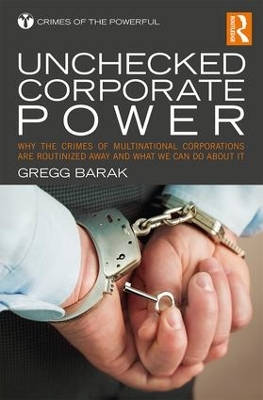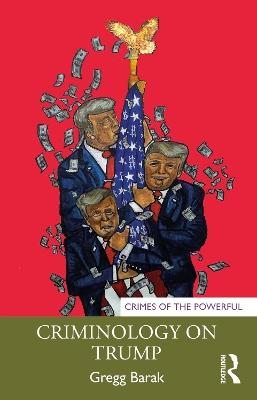Crimes of the Powerful
2 total works
Why are crimes of the suite punished more leniently than crimes of the street? When police killings of citizens go unpunished, political torture is sanctioned by the state, and the financial frauds of Wall Street traders remain unprosecuted, nothing succeeds with such regularity as the active failures of national states to obstruct the crimes of the powerful.
Written from the perspective of global sustainability and as an unflinching and unforgiving exposé of the full range of the crimes of the powerful, Unchecked Corporate Power reveals how legalized authorities and political institutions charged with the duty of protecting citizens from law-breaking and injurious activities have increasingly become enablers and colluders with the very enterprises they are obliged to regulate. Here, Gregg Barak explains why the United States and other countries are duplicitous in their harsh reactions to street crimes in comparison to the significantly more harmful and far-reaching crimes of the powerful, and why the crimes of the powerful are treated as beyond incrimination.
What happens to nations that surrender ever-growing economic and political power to the globally super rich and the mammoth multinational corporations they control? And what can people from around the world do to resist the criminality and victimization perpetrated by multinationals, and generated by the prevailing global political economy? Barak examines an array of multinational crimes—corporate, environmental, financial, and state—and their state-legal responses, and outlines policies and strategies for revolutionizing these contradictory relations of capital reproduction, criminality, and unsustainability.
1. While there is an increasingly cluttered market for books on Trump, from journalistic exposes to political memoirs to psychological analyses, this is the first book to offer a criminological perspective on the former president.
2. The book focuses on Trump's character, his crimes and the social and political contexts of his rise to power; as such it has a market across criminology, sociology, law, political science and social and political history.
3. This book offers new perspectives on a range of topical issues such as Black Lives Matter, the QAnon phenomenon, white nationalism and right-wing extremism, Robert Mueller's investigation of Russian collusion, the Impeachment trials, and tax evasion.

